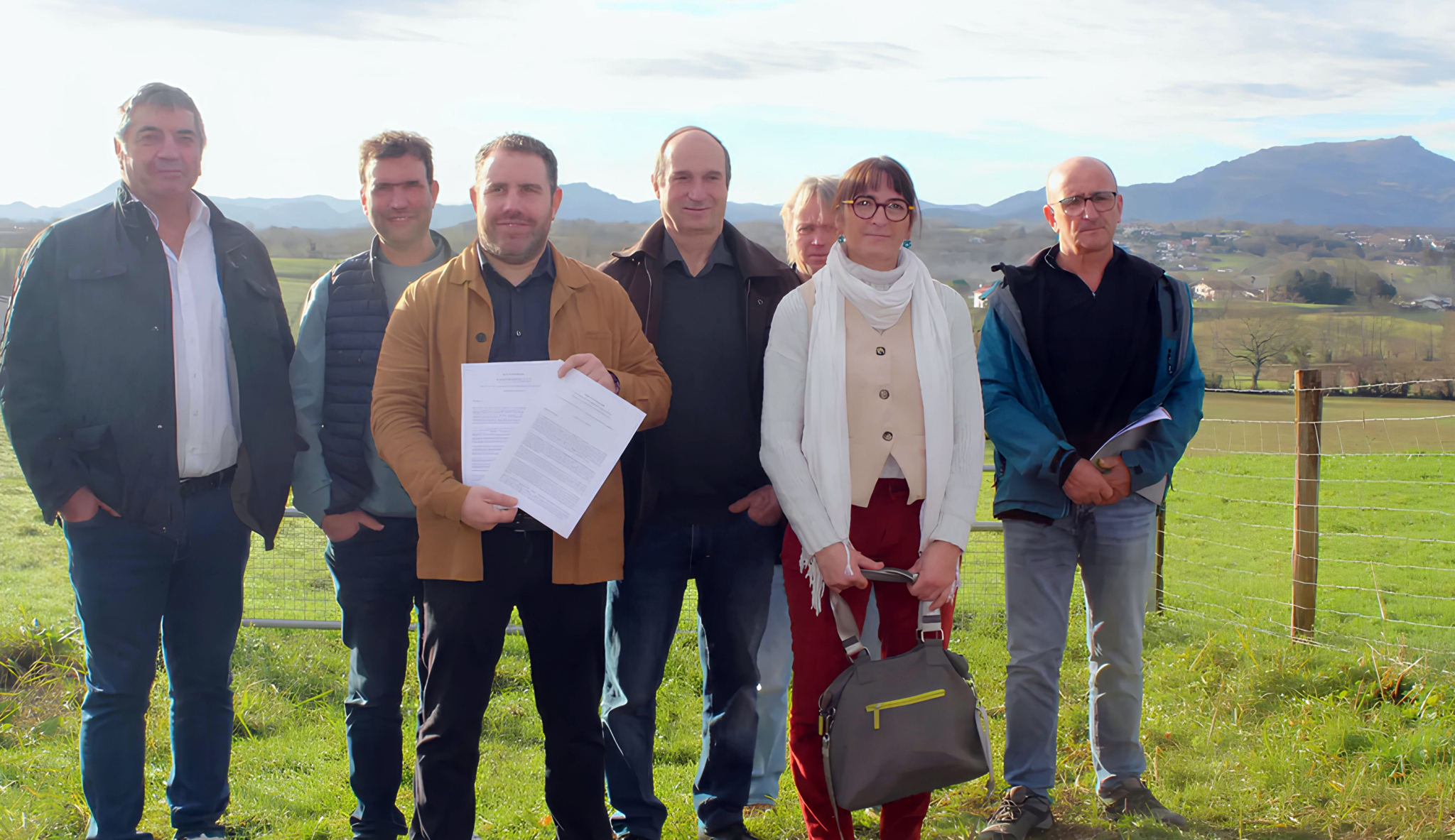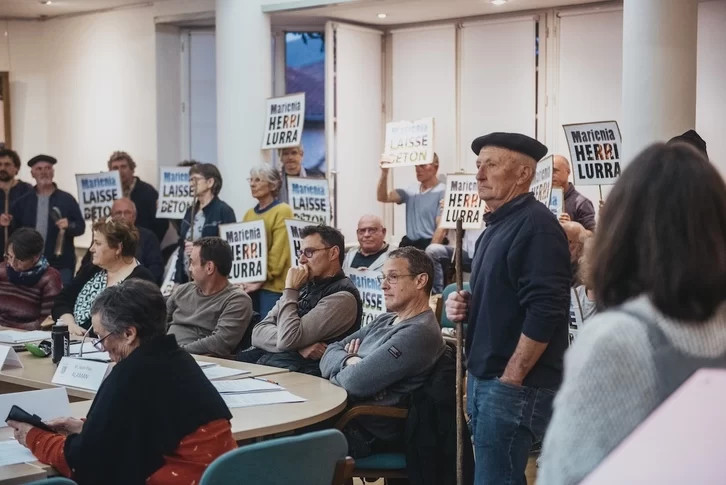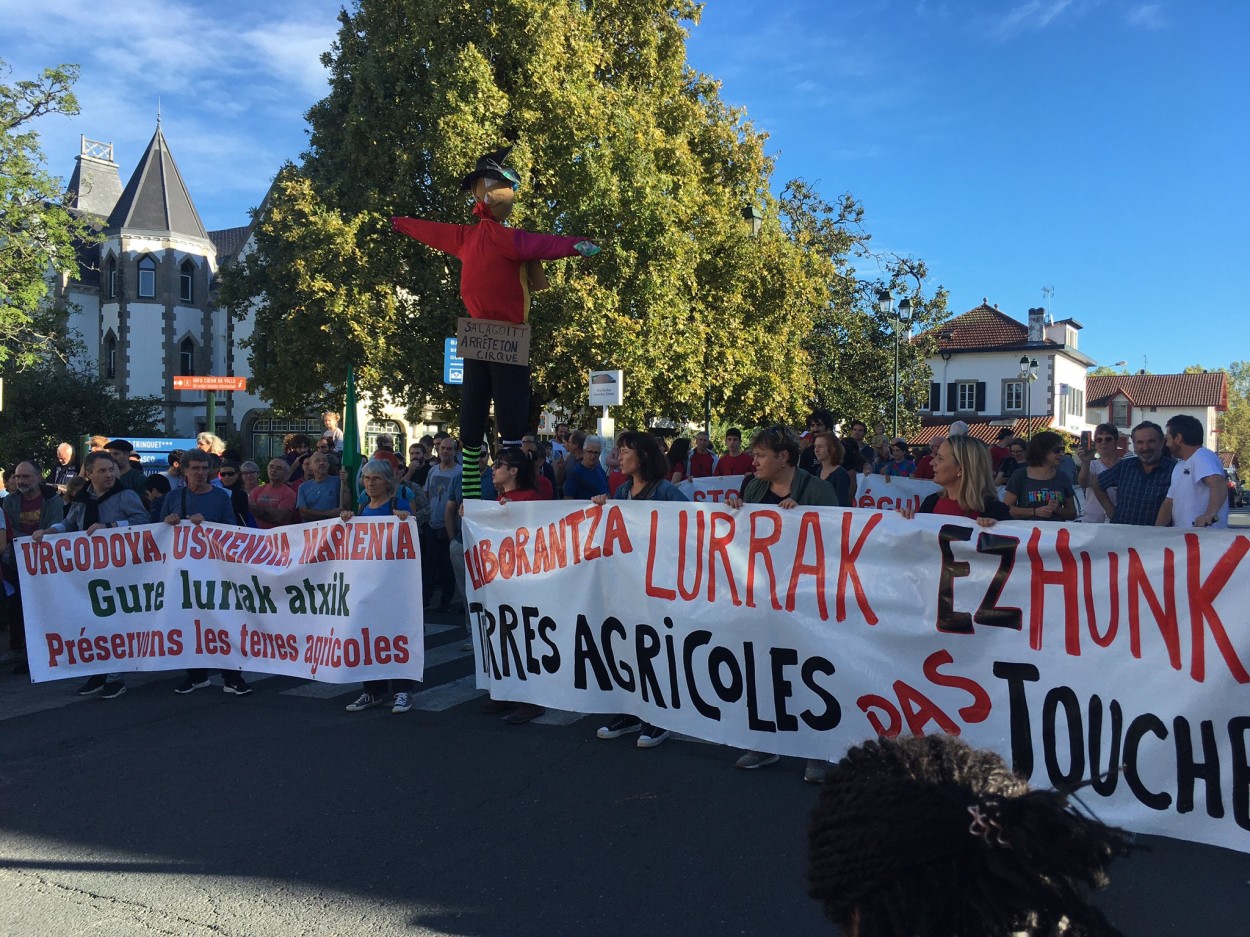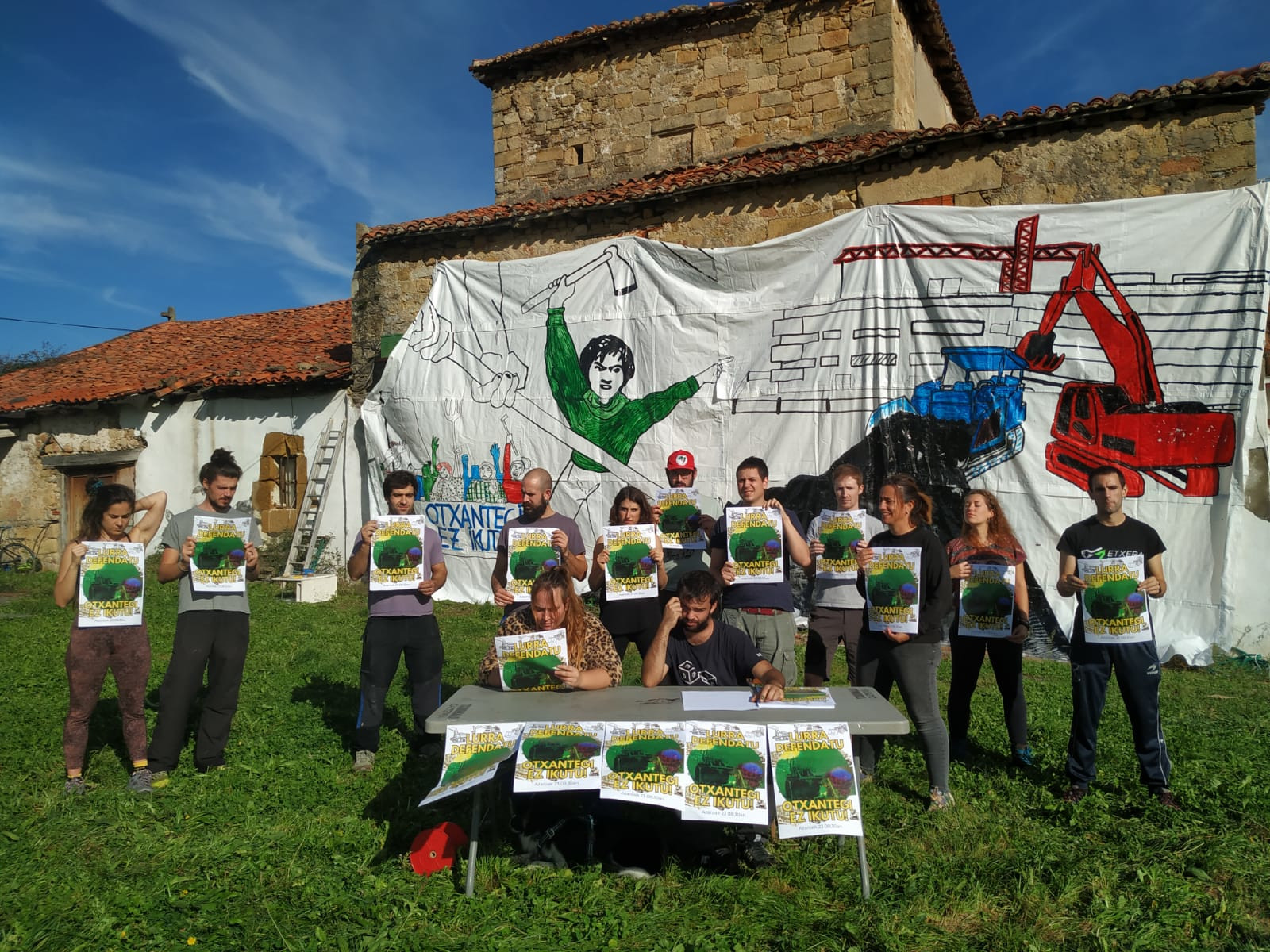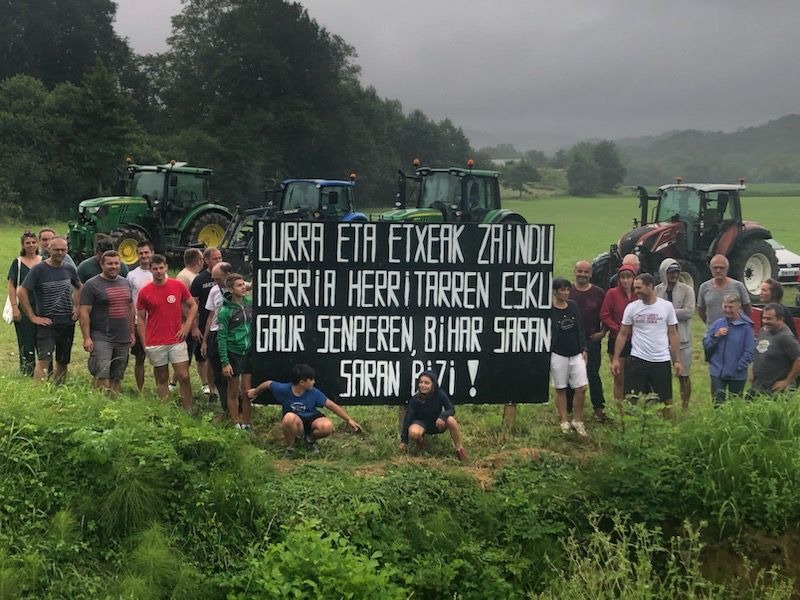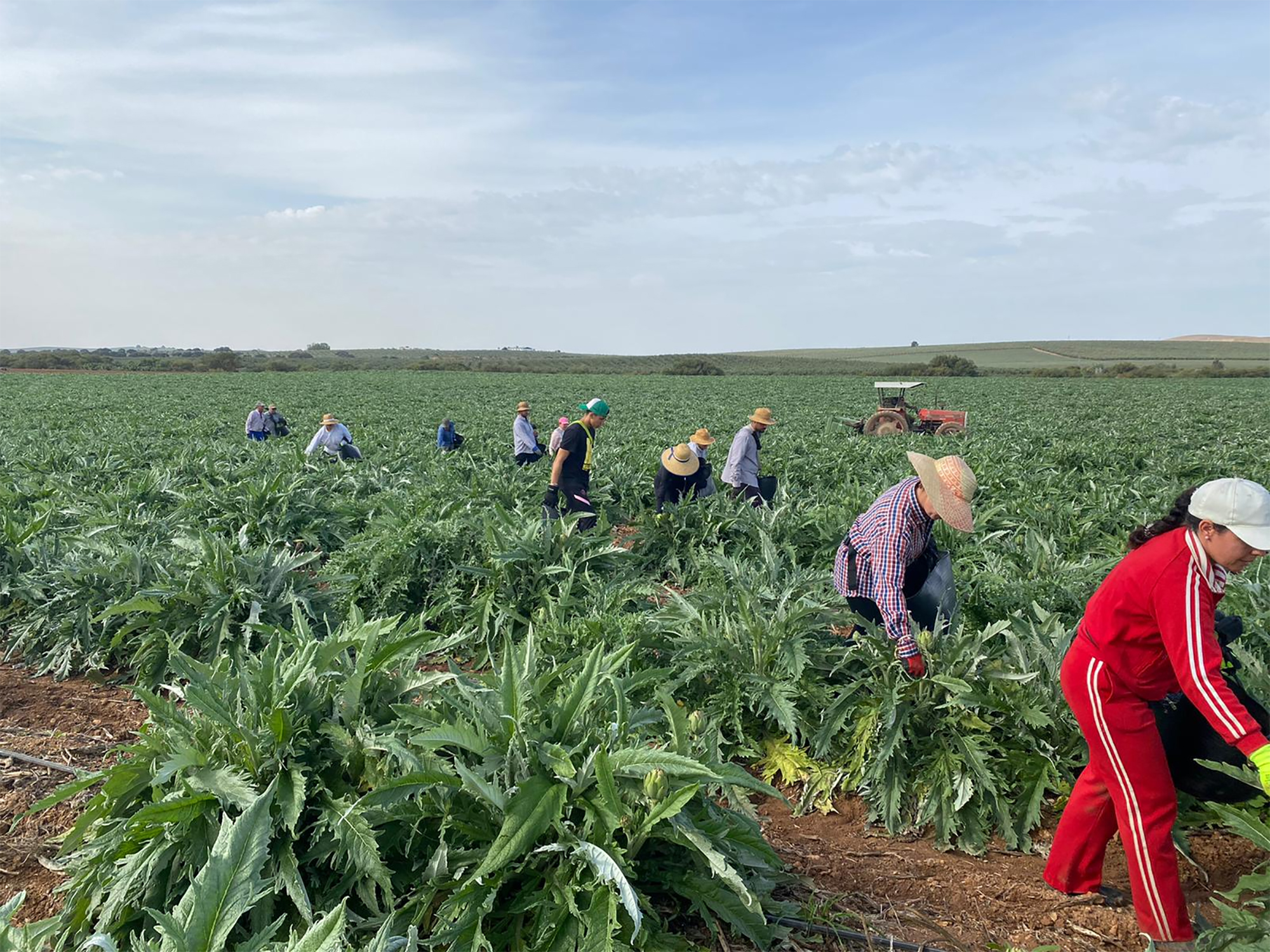"Liberalization brings the concentration of land"
- Conflicts in the world are based on a common point: the misdistribution of land. Because the instrument of the labourers is concentrated in the hands of a few. This warning serves to understand the socio-economic conflicts in Africa, the Middle East, South America and the Basque Country. The university student Pierre Blanc is looking at history and analysing the current reality, always trying to improve the situation and avoid political conflicts.

Land grabbing and hunger go hand in hand.
Africa is one of the continents most affected by the Land Grabbing, which has been growing since 2008, and is precisely the most affected by hunger. There is no direct connection, because famine comes from farther away. But this correlation cannot be maintained, especially at the level of those who say that they invest in Africa to solve the problem of hunger. We cannot let that be said because that is not the case. We can solve the problem through the local development of agriculture through national agricultural policies that help farmers.
These investors don't care about the usual right.
In African countries where there has been no colonization, customary law is still present. Modern States have often taken their land, peasants continue to use their land under customary law. The point is that these states are not always imperfect and that they sell or give fields to investors. It is serious, because external investors are under great pressure.
Africa has all the other colonized areas.
The French settlers who arrived in the Maghreb, the Dutch and the British who entered southern Africa took over all the land. Even today, the consequences are familiar. Look at South Africa, the issue of land is more than ever on the political agenda of President Cyril Ramaphosa. After winning the vote in 1994, Nelson Mandela did not want to go through a radical land reform to preserve national cohesion. Time has passed and the next presidents do not have the recognition that Mandela had. Ramaphosa has opted for a fair distribution of land, as it is justice in itself. The thing is, you don't have to do it anyway. Look in Zimbabwe, the population is caught up in violence and starved.
What is the right path?
To say that the right to land for Africans is very good, to distribute property titles is very good, because they bring peace to the peasants. But we must look at history, at the teachings of the past! If an ambitious agricultural policy is not drawn up in favour of farmers, they will sell their land tomorrow or later, because without help it is too difficult for them to be retained.
Authoritarianism or revolutions are the basis upon which the earth rests.
I call these events agri-political moments. This is still the case in rural and agricultural societies. In Africa, Central America and Asia, where we have poor land distribution. On the one hand, land oligarchies try to protect their economic interests and, on the other hand, the protests of farmers who cannot access the land. We have many examples, even in Europe, in Spain or in Italy, we can understand many of the authoritarian abuses by observing the prism of the earth.
We tend to look at the Middle East both politically and religiously. In that area there is also the land at the base.
The land has been very poorly distributed in the Middle East, especially by the Ottomans in the early nineteenth and twentieth centuries, as well as privatizing the land, it was deposited in the hands of a few. In Egypt, despite separating itself from the Ottomans, there was a terrible bipolarization of the earth during the 1952 revolution. Same as Iran. In other words, many well-known political events are based on this situation. However, there are countries, such as Libya or Palestine, where there have been no such reforms. The fact that there is no land division still has political consequences.
Democracy does not exist unless there is a fair distribution of land.
History shows that there is a direct connection between land distribution and political stability. Look at the United States and Canada, they've been able to develop democracy in a fairly egalitarian socio-agricultural landscape. The first time he was in the United States, theorist Alexis de Tocqueville was surprised by the level playing field. Equality was also linked to land sharing. I say this, making it clear that they have done so without regard to marginalization; I remember all the indigenous peoples who have been black, spotted or massacred. When we talk about the democratic stubbornness of the United States, we talk about the stability of white democracy.
Let us also look at our reality.
We suffer from the concentration of land around the world. On the one hand, we have fewer and fewer farmers, because the professional vocation is low and, on the other, because land has become a profitable asset worth investing in. Instability is not so politically important, because in France, for example, cultivation accounts for between 2% and 3% of the working population. But the problem is there.
How can we avoid land concentration?
It is very difficult, but the land market must be regulated, as liberalisation implies the concentration of land.
conflicts “I’m interested in peace, that’s why I’m looking at geopolitics. When we're interested in geopolitics, we're interested in the dynamics of violence. I focused on the Middle East and the Mediterranean. When we look at these territories, we see to what extent the issues of land and water are crucial. But, in the end, also in other regions of the world the same dynamics appear; dynamics that resonate in my roots, being the son of a labrador”
Lurraren alde borrokan dabilen orok begi onez hartu du Frantziako Legebiltzarrak laborantza lurren babesteko lege-proposamenaren alde bozkatu izana. Peio Dufau diputatu abertzaleak aurkezturiko testua da, eta politikoa eta sentimentala juntaturik, hemizikloan Arbonako okupazioa,... [+]
203 diputatu alde eta hiru aurka agertu dira martxoaren 11 gauean egin bozketan. Higiezinen agentziak haserre agertu dira, eta bi salaketa aurkeztu ditu FAIN Frantziako Higiezinen Federazio Nazionalak Europako Batzordean. Bata, lege-proposamenari esker botere gehiago jasoko... [+]
The two main voters in Kanbo (the mayor and the prime minister) are the rabid ones. Three citizens have been beaten with a plainta, for protesting in favour of the eviction of the neighbor Marienea.Es the second time that, at 06:00 in the morning, they take us out of bed (with... [+]
Kanboko Marieniako higiezin proiektuaren kontra bildu dira elkarte eta herritarrak larunbat honetan. Larunbatean, mahai inguru eta tailerren bidez herritarrak sentsibilizatu nahi izan dituzte Bouygues Immobilier agentziaren proiektuaren desmasiez.
The devastating trend to the cement business does not cease in Berango, and we are currently experiencing two important moments. On the one hand, the date for the forced emptying of Otxantegi is set: 23 November. On the other hand, the procedure for starting works on the... [+]
The French State Council has decided that the Earth Survey should eliminate the destruction of the network. Although it is confirmed that this movement causes "violence against goods", the legalization would not be "an appropriate, necessary and adapted measure". It is good news for... [+]




.JPG)








